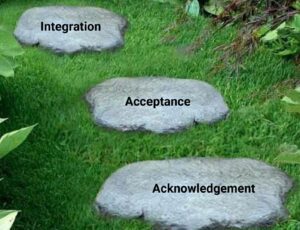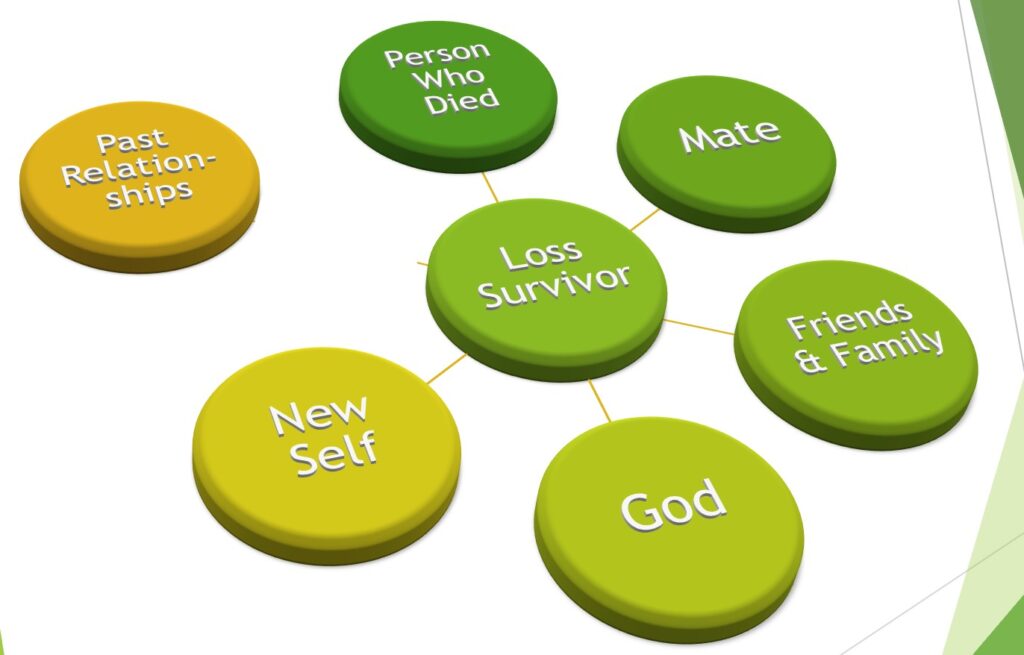“Metaphors have a way of holding the most truth in the least space” – Orson Scott Card
We use the metaphor of a ‘journey’ for the struggle to survive the wilderness of grief often, and for good reasons:
- The most interesting journeys in life take us somewhere we have never been – they embody change. In losing a loved one, we have massive change thrust upon us. We are transformed. The griever has no idea where their grief will take them . . . or if they can even make the journey.
- Many journeys are hard work – sometimes frustrating, leaving us feeling like we’re not making real headway. We seem to be going back over the same ground . . . are we traveling in circles? Or is it really a switchback . . . lots of efforts for small, hard-won progress.
- All journeys have a starting point – every person in grief knows exactly when and where their journey started. That moment in time divides their life. I know I’ll never be the guy I was before our losses again.
- Finally, journeys have a goal or objective, though any experienced journeyer knows that they will probably not stop there – it is only as far as they can envision going at the beginning. Dr. Alan Wolfelt describes the objective of the griever’s journey as Reconciliation, in his book Understanding Your Grief. It’s a beautiful concept, one I want to explore further.
So, we know where we are at the beginning of the grief journey and we know where we hope to get when we arrive (Reconciliation), but the path between the two is unclear. As Grief Companions, we walk beside them and encourage them to take their first step . . . and then, the next one and the one after that.
Today, I want to examine the goal, the perceived destination, of this journey – Reconciliation. I believe Hope lives there.
The word ‘reconcile’ originated in Middle English. It meant ‘to make good again’ or restore. That’s certainly a goal any griever will sign up for. But let’s take a deeper look at the word, reconcile. As it’s used in modern English, it has a variety of meanings:
- To resolve, or settle – as in reconciling the books
- To bring oneself to accept – as in being reconciled to your fate
- To restore harmony – as in reconciling a dispute
- To reestablish a close relationship – as in reconciling with an estranged loved one
All of these meanings have relevance to the griever’s journey.

Reconciling Differences. Though the central loss for the griever is bereavement from their loved one, most grievers find they lose much more. They often lose long held values, guiding priorities, their self-image and place in society, hopes for the future, and their sense of purpose and meaning. The scales become unbalanced between who they were before the loss and who they are becoming.
A big part of the griever’s journey is a quest for something to replace elements of what was lost – to reconcile the differences in their lives before and after the loss. What parts of our prior value system can we reconcile to our new reality? What is important in our new lives after this devastating loss? Who is able and willing to join us on our personal grief journey, who undermines that journey?
Restoration of balance is an essential part of the griever’s overall grief journey.

Accepting the Loss. Dr. Wolfelt has identified the first Need of Mourners as “Acknowledging the Reality of the Death”. In the immediate wake of the loss, much of life seems surreal to the griever. It no longer makes sense. They may feel they are losing their minds. This fundamental need to find a way to simply acknowledge the reality of the loss and the resulting disruption of our world is, for many, a critical first step on the journey to reconciliation. Acknowledgement is largely a process of the intellect; acceptance is of the heart. Acknowledgement ultimately enables acceptance that the loss is real, that the pain of grief is now permanently part of our lives, and that to survive this grief we must go through it . . . there is no way around it.
Farther down the path, we build the hope that acceptance of the loss and the changes it injects into our lives will enable integration into a new version of ourselves. We understand that the pain of the loss will always be with us, but we have the context of the love that goes hand-in-hand with the pain. We find ways to rebuild ourselves around this core of loss and restore meaning and purpose. We ultimately integrate it.

Restoring Balance and Harmony. The imbalances in the griever’s life after loss and the strain of acknowledging and accepting the loss into their life is disruptive and disturbing. Many times all sense of harmony disappears. Reconciliation in the sense of restoration of harmony is essential for the griever to move forward and to find the resilience to get past the slips, falls, and backsliding that inevitably occur on their individual journeys. Ultimately, they hope to find new meaning and purpose that are in harmony with their changed values and priorities . . . to reconcile the conflicts that arise as a result of their changed reality.

Reconciling Relationships. Many relationships fall victim to the trauma and upset wrought by tragic loss. The griever finds that some people in their past are unable to make this journey with them – may even hinder their journey. Often they are some of the people who were closest before the loss. Our closest relationships, with spouses, lovers, best friends will be strained – sometimes to the breaking point, especially after the loss of a child. Friends and family may get caught up in mourning their relationships with the griever as well as with the person who died. Some, who may not have been central in the griever’s life before the loss, step up and become effective companions on the journey.
As the griever discovers how they must mourn, they find new companions on their journey: fellow grievers, trusted counselors and advisors, people who enable access to parts of the world aligned with new values and priorities.
Many grievers’ experience a profound crisis of faith in the aftermath of loss. They may be angry with God. They may decide their loss would not be possible under the care of a loving God – so either God doesn’t exist or He’s not a loving God. They may have been an atheist or agnostic before their loss and suddenly find themselves reassessing those beliefs. Regardless of their faith or their conception of a higher power and afterlife: it is common that reconciliation of the griever’s spiritual self will require a reconnection with a higher power on some level.
Ultimately, the grieving person will find themselves reconciling who they were with who they’re becoming. Change after loss is not optional. No one will ever again be who they were before their loss. Some of those changes are fundamental, many are permanent. So the griever often finds themselves reconciling their old self and new self. That, too, can be unsettling and feel schizophrenic. Often with complex grief, guilt or shame or the need for self-forgiveness can become barriers to this reconciliation. To reconcile to our changed selves, we need to learn to embrace the changes wrought in us.
Sadly, some relationships may not survive the grief journey. Those people may not be able to comprehend or accept the changes the griever experiences, they may not be able to support the hard work of struggling through the wilderness of grief. For both parties’ sakes, it will be best not to fight the evolution of their relationship – to accept that their relationship is part of their history, but may not be part of the griever’s new story.
New connections, whether brand new or restored/reenergized connections, are a necessary and vital part of the reconciliation process. They frame our position in the world. The journey is long and painful. It is fraught with frustrations, false starts, backsliding, and switchbacks. It requires that the griever learn and grow.
My journey thus far has been filled with learning, probably because I have so much to learn. I have been blessed with insightful, patient, caring teachers along the way. Some of the most impactful of those teachers have been people I have Companied on their own journeys.
Dr. Wolfelt discusses Reconciliation as one of the essential touchstones for finding hope and healing your heart, it is the ninth Touchstone. The full title of Touchstone 9 is “Seek Reconciliation, Not Resolution”. Resolution implies an ending, a conclusion. While there are common elements between the two, the finality of resolution doesn’t work in grief or in life. I realize that, as valuable and desirable as it is to set a goal for a journey like this – once you get there it is evident that it is not an ending. There’s another switchback ahead, maybe a pit of despair or two along the way. I’ve reconciled myself to that. I’m also reconciled to the fact that, as I look back down my path and realize how far I’ve come, I have farther to go than I may have hoped at this stage – but I’m moving in the right direction.
Reconciliation is not a destination; it is a way of being – a state of mind.


